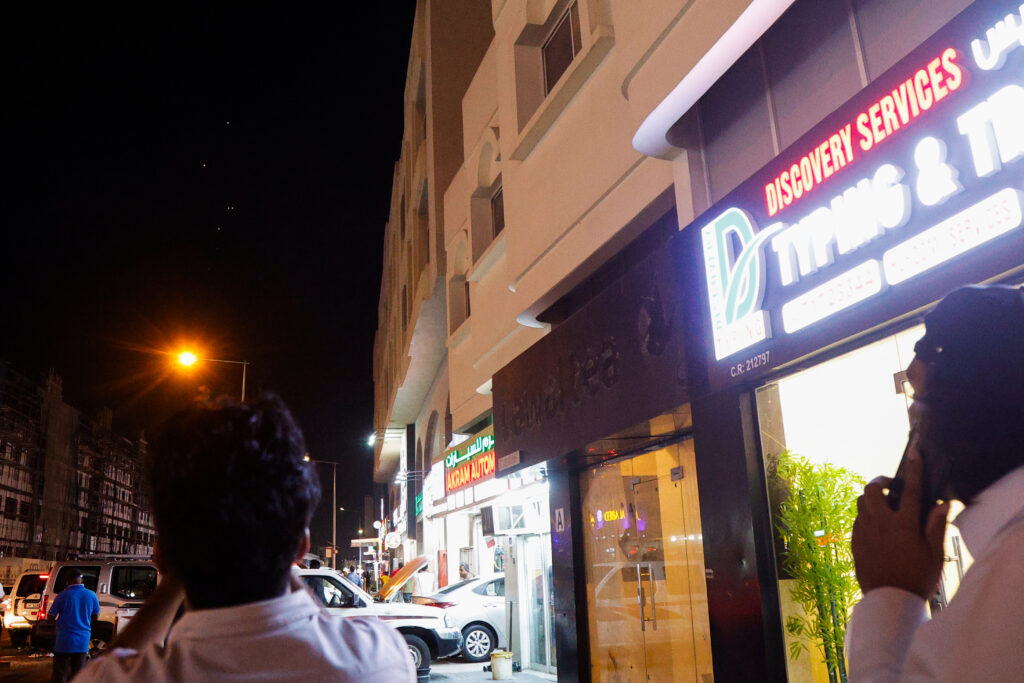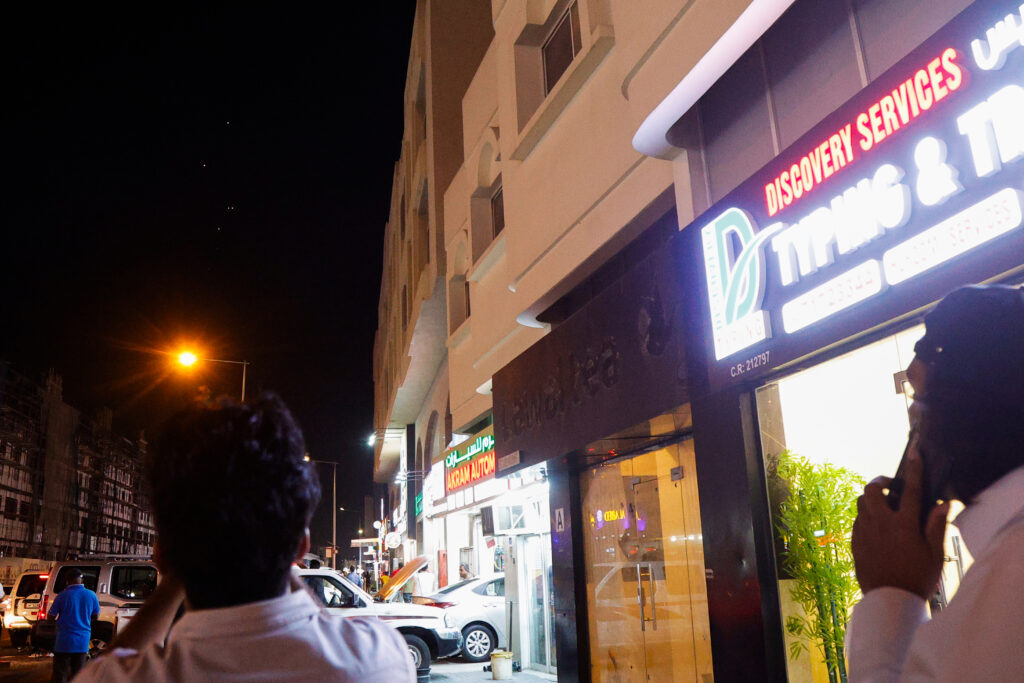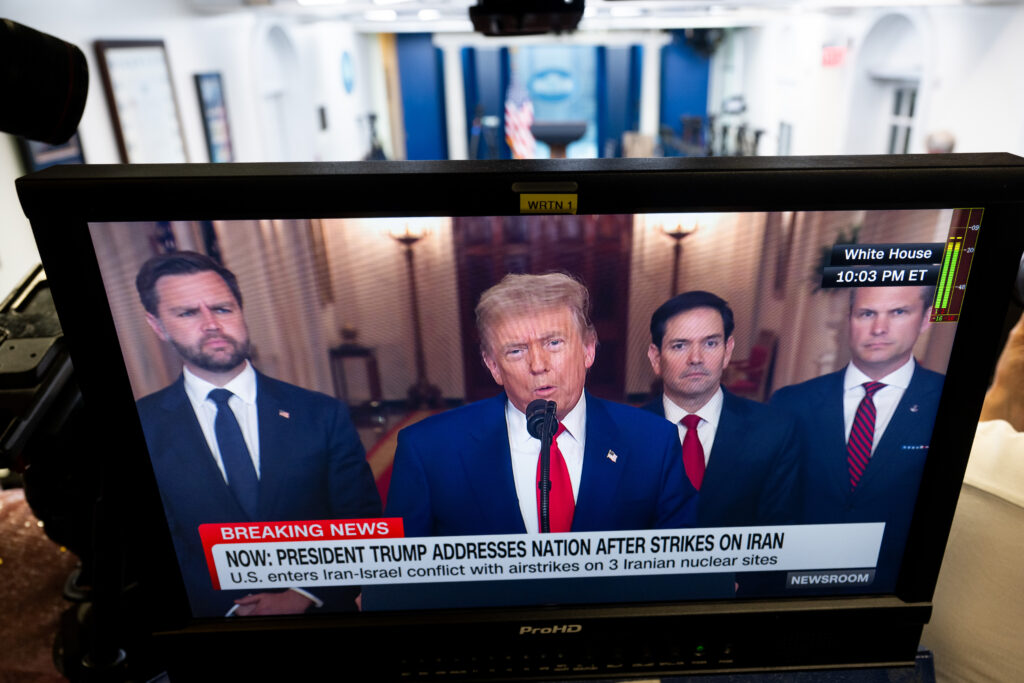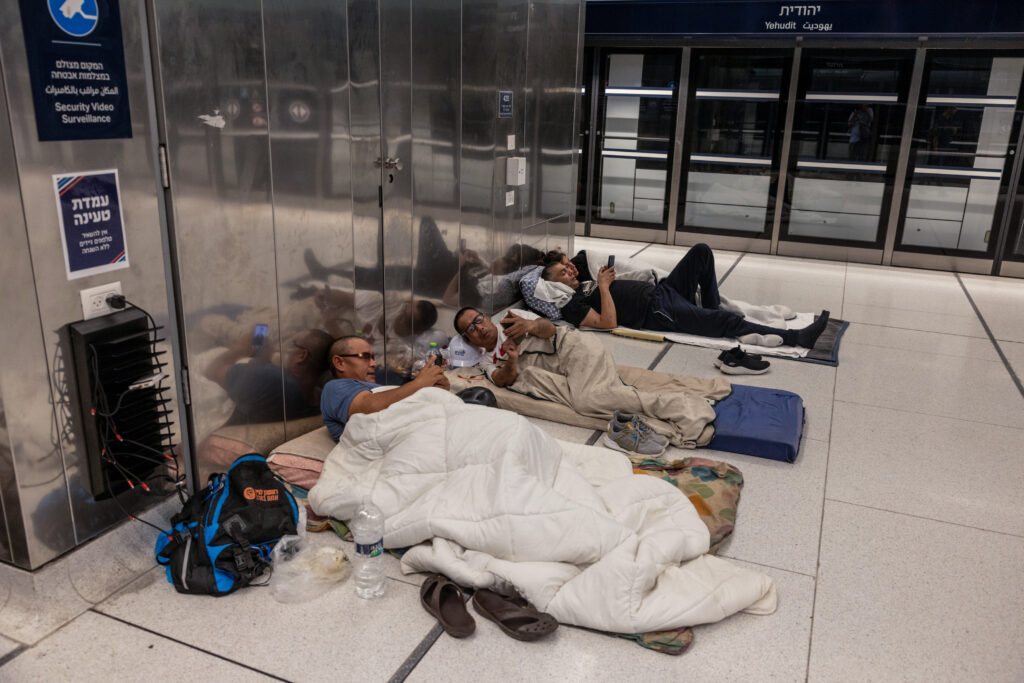L’Iran a annoncé lundi soir avoir lancé des missiles contre la base américaine d’Al-Udeid au Qatar, la plus grande du Moyen-Orient, en représailles aux bombardements dimanche de trois sites nucléaires iraniens, Doha assurant avoir intercepté ces tirs avec succès. Téhéran, engagé depuis 11 jours dans une guerre avec Israël, met ainsi à exécution ses menaces de riposte aux frappes américaines sur le site souterrain d’enrichissement d’uranium à Fordo et des installations nucléaires à Ispahan et Natanz (centre). “En réponse à l’action agressive” des États-Unis”, les forces armées iraniennes “ont frappé (…) la base aérienne américaine d’Al-Udeid, au Qatar”, a déclaré le Conseil de sécurité nationale iranien dans un communiqué. Il a précisé avoir utilisé autant de missiles “que le nombre de bombes” utilisés dans les raids américains, semblant signaler une riposte proportionnée et dument mesurée. “Cette action ne représente aucune menace” pour le Qatar”, a-t-il ajouté. Le ministère qatari de la Défense a dit avoir “intercepté avec succès une attaque de missiles visant la base aérienne d’Al-Udeid”, affirmant qu’il n’y avait pas eu de victimes.Mais les Gardiens de la Révolution, l’armée idéologique de la République islamique, ont affirmé dans un communiqué, cité par l’agence de presse Irna, que “six missiles (avaient) touché la base”. “A l’heure actuelle, aucune victime américaine n’a été signalée”, a déclaré un responsable américain, affirmant n’être au courant “d’aucun dégât sur la base”.Le Qatar “se réserve le droit de répondre directement” à cette “agression flagrante”, a réagi le ministère qatari des Affaires étrangères, ajoutant que la base avait été précédemment évacuée. Au lendemain de l’intervention américaine qui a, selon le Pentagone, “dévasté le programme nucléaire iranien”, la Maison Blanche avait auparavant pressé le pouvoir iranien d’opter pour un règlement diplomatique, s’il voulait se maintenir à la tête du pays. – Scènes de liesse à Téhéran -Dimanche, Ali Akbar Velayati, un conseiller du guide suprême Ali Khamenei, avait menacé de telles attaques contre les bases militaires américaines dans la région. Plus tôt dans la journée, l’ambassade des États-Unis à Doha avait conseillé à ses ressortissants au Qatar de se “mettre à l’abri jusqu’à nouvel ordre”. La télévision d’Etat iranienne a montré en direct dans la soirée des manifestants en liesse à Téhéran, aux cris de “mort à l’Amérique”. Les tirs sur le Qatar prouvent que l’Iran menace “le monde entier”, a réagi un porte-parole de l’armée israélienne, Effie Defrin.L’Irak a mis en garde contre un “élargissement de la confrontation”, deux responsables de la sécurité précisant à l’AFP que la base d’Aïn al-Assad abritant des troupes américaines n’avait pour l’instant” pas été visée. Ryad et Abou Dhabi ont condamné l’action iranienne, le Koweït et Bahreïn annonçant fermer leur espace aérien, et les cours du pétrole ont chuté. Plus tôt, les Etats-Unis avaient mis en garde l’Iran contre toute fermeture du détroit d’Ormuz, par où transite un cinquième du pétrole mondial. La télévision d’Etat iranienne a par ailleurs annoncé l’arrestation d’un “ressortissant européen” soupçonné d’être un “espion” au service d’Israël, sans plus de précision. – Frappes israéliennes sur Téhéran -Israël a de son côté appelé les habitants de Téhéran à s’éloigner des bases militaires et sécuritaires, prévenant de la poursuite de ses raids, après d’intenses frappes sur la capitale iranienne ciblant des centres de commandements des Gardiens de la Révolution et la prison d’Evine, en riposte à des tirs de missiles iraniens. La justice iranienne a fait état de dégâts dans certaines parties de la prison d’Evine, où sont détenus des Occidentaux, prisonniers politiques et opposants.Les deux Français, Cécile Kohler et Jacques Paris, qui y sont détenus depuis plus de trois ans, “n’auraient pas été touchés” a affirmé le chef de la diplomatie française, Jean-Noël Barrot, dénonçant une frappe “inacceptable”.Israël a aussi indiqué avoir mené des frappes pour “bloquer les voies d’accès” au site de Fordo enfoui sous une montagne, au sud de Téhéran. En Iran, la guerre a fait plus de 400 morts et 3.056 blessés, en majorité des civils, selon un bilan officiel. Les tirs iraniens sur Israël ont fait 24 morts, d’après les autorités.Affirmant que l’Iran était sur le point de se doter de la bombe atomique, Israël l’a attaqué le 13 juin, bombardant des centaines de sites militaires et nucléaires et tuant les plus hauts gradés du pays ainsi que des scientifiques du nucléaire.L’Iran, qui riposte avec des tirs de missiles et de drones vers Israël, dément vouloir fabriquer l’arme atomique mais défend son droit à un programme nucléaire civil.- “Changement de régime”? -Le président américain, Donald Trump, s’est prévalu dimanche de “dommages monumentaux” infligés aux sites nucléaires iraniens. L’Agence internationale de l’énergie atomique (AIEA) a jugé impossible à ce stade d’évaluer les dégâts, réclamant un accès aux sites iraniens. Des experts estiment que l’Iran pourrait en avoir évacué le matériel nucléaire, et Téhéran a affirmé toujours posséder des stocks d’uranium enrichi.L’Iran a enrichi de l’uranium au niveau de 60%, proche du seuil de 90% requis pour fabriquer une bombe atomique selon l’AIEA, qui dit toutefois n’avoir décelé jusque-là aucun indice d’un “programme systématique” iranien pour ce faire. Donald Trump, qui avait relancé les négociations avec Téhéran pour encadrer son programme nucléaire – lancées en avril sous médiation d’Oman – est “toujours intéressé” par un règlement diplomatique, a affirmé lundi la porte-parole de la Maison Blanche. Mais “si le régime iranien refuse de s’impliquer dans une solution diplomatique (…) pourquoi le peuple iranien ne retire pas le pouvoir à ce régime incroyablement violent qui le réprime”, a-t-elle dit.”Si le régime iranien actuel est incapable de RENDRE A L’IRAN SA GRANDEUR, pourquoi n’y aurait-il pas un changement de régime ???” avait écrit la veille M. Trump sur son réseau Truth social.







